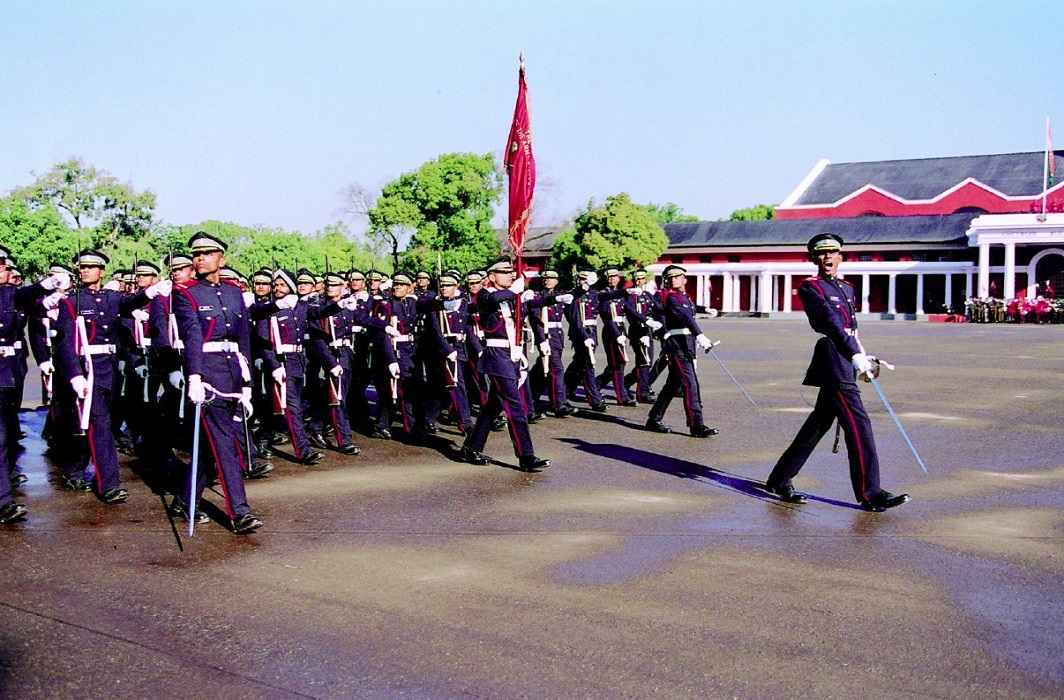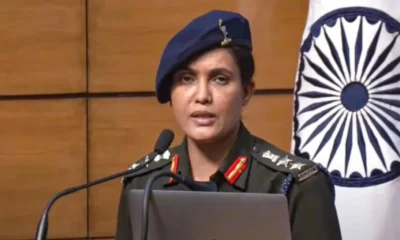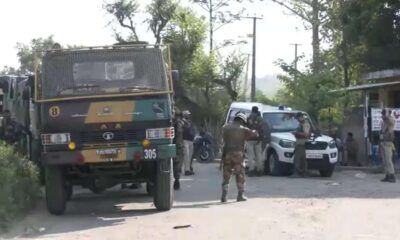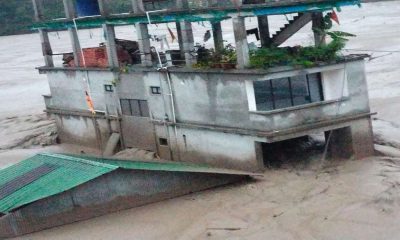[vc_row][vc_column][vc_column_text]Seven gentleman cadets had collapsed during a training process on Friday; two of them succumbed during treatment while the rest five are reportedly stable
The death of two cadets of the prestigious Indian Military Academy within three days of participation in a 10-km run has raised serious questions about the way the cadets are screened before being inducted into the academy.
Gentleman cadets Deepak Sharma and Nabin Kumar passed away on August 18 and 20 respectively after both collapsed during the training exercise.
According to the IMA, seven cadets had collapsed on Friday during a “routine 10-km run” being conducted in the general area of Badshahi Bagh in Saharanpur district of UP.
“During the runback of the exercise, seven gentlemen cadets fell unwell due to dehydration. These cadets were administered first aid by Medical Officer at the location and (six of them) evacuated in specialised ambulances with paramedic support to the Military Hospital in Dehradun,” Army said in a statement.
Of the seven, Deepak Sharma (22) from Bathinda, Punjab, was rushed to the nearest local hospital in Vikasnagar, in Dehradun district, in a “critical” condition, where he died the same day.
Of the other six, Nabin Kumar Chhetri (23) from Darjeeling, West Bengal, was referred to Dehradun-based Shri Mahant Indiresh Hospital, where he died late Saturday night, according to a statement issued by the IMA on Monday.
The remaining five GCs admitted at the Military Hospital were reportedly “stable”.
The incident has brought into the fore the serious lapse in evaluating physical fitness of the candidates and failure of officials to test them properly during the screening process.
Commenting on the incident, retired and serving Army officers labeled the incident as “alarming” and questioned the existing selection process.
Expressing anguish over the incident, Lt General Gambhir Negi said there was a need for more efficient tests for physical fitness before the induction of the candidate into the academy.
“There have been no such cases when I was a cadet and later the commandant at the academy. We would get tired during training but never reached a point of collapse,” he said.
Retired Colonel S C Tyagi also called for a stricter induction process and blamed the “lifestyle choice” of the youth for decreasing strength and endurance in them.
However, the cause of death of the two cadets is yet to be established. Citing sources, a report in Hindustan Times said the postmortem reports have failed to establish the cause of death of the two cadets.
According to the report, the viscera of the dead has been preserved for further examination to establish the cause.[/vc_column_text][/vc_column][/vc_row][vc_row][vc_column][vc_column_text css=”.vc_custom_1503403330861{padding-top: 5px !important;padding-right: 5px !important;padding-bottom: 5px !important;padding-left: 5px !important;background-color: #cecece !important;border-radius: 10px !important;}”]
Incident brings Army’s discriminatory compensation policy into light
Apart from the screening process, the incident has also brought Army’s discriminatory compensation scheme into focus. A report in a national daily shows disparity in the compensation given to officer trainees of the civil department as compared to the defence departments.
In the wake of latest incident, several former cadets who sustained disability during training have raised the issue in social media and through signature campaigns.
Unlike the trainees of the civil side, the Ministry of Defence does not recognise officer trainees of defence services as government employees. And hence such trainees only receive “monthly ex-gratia payment” instead of proper disability or family pension on death.
“The amount happens to be less than what is admissible even to a Sepoy of the Army, a Constable of Police or even a peon of any department,” says Lt Col SS Sohi (retd), president of Ex-Servicemen Grievances Cell.[/vc_column_text][/vc_column][/vc_row]


 Latest world news19 hours ago
Latest world news19 hours ago
 Latest world news19 hours ago
Latest world news19 hours ago
 India News19 hours ago
India News19 hours ago
 Latest world news10 hours ago
Latest world news10 hours ago















